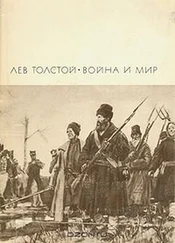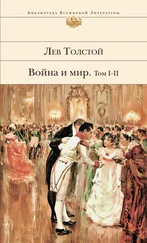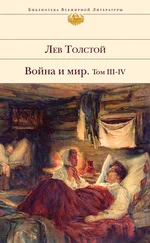| The Russian Emperor's aide-de-camp is an impostor. Officers are nothing when they have no powers; this one had none.... The Austrians let themselves be tricked at the crossing of the Vienna bridge, you are letting yourself be tricked by an aide-de-camp of the Emperor. |
Г енерал-адъютант российского императора обманщик... Офицеры ничего не значат, когда не имеют власти полномочия; он также не имеет его... Австрийцы дали себя обмануть при переходе венского моста, а вы даете себя обмануть адъютантам императора. |
| NAPOLEON |
Наполеон.] |
| Bonaparte's adjutant rode full gallop with this menacing letter to Murat. |
Адъютант Бонапарте во всю прыть лошади скакал с этим грозным письмом к Мюрату. |
| Bonaparte himself, not trusting to his generals, moved with all the Guards to the field of battle, afraid of letting a ready victim escape, and Bagration's four thousand men merrily lighted campfires, dried and warmed themselves, cooked their porridge for the first time for three days, and not one of them knew or imagined what was in store for him. |
Сам Бонапарте, не доверяя своим генералам, со всею гвардией двигался к полю сражения, боясь упустить готовую жертву, а 4.000-ный отряд Багратиона, весело раскладывая костры, сушился, обогревался, варил в первый раз после трех дней кашу, и никто из людей отряда не знал и не думал о том, что предстояло ему. |
| CHAPTER XV |
XV |
| Between three and four o'clock in the afternoon Prince Andrew, who had persisted in his request to Kutuzov, arrived at Grunth and reported himself to Bagration. |
В четвертом часу вечера князь Андрей, настояв на своей просьбе у Кутузова, приехал в Грунт и явился к Багратиону. |
| Bonaparte's adjutant had not yet reached Murat's detachment and the battle had not yet begun. |
Адъютант Бонапарте еще не приехал в отряд Мюрата, и сражение еще не начиналось. |
| In Bagration's detachment no one knew anything of the general position of affairs. They talked of peace but did not believe in its possibility; others talked of a battle but also disbelieved in the nearness of an engagement. |
В отряде Багратиона ничего не знали об общем ходе дел, говорили о мире, но не верили в его возможность. Говорили о сражении и тоже не верили и в близость сражения. |
| Bagration, knowing Bolkonski to be a favorite and trusted adjutant, received him with distinction and special marks of favor, explaining to him that there would probably be an engagement that day or the next, and giving him full liberty to remain with him during the battle or to join the rearguard and have an eye on the order of retreat, "which is also very important." |
Багратион, зная Болконского за любимого и доверенного адъютанта, принял его с особенным начальническим отличием и снисхождением, объяснил ему, что, вероятно, нынче или завтра будет сражение, и предоставил ему полную свободу находиться при нем во время сражения или в ариергарде наблюдать за порядком отступления, "что тоже было очень важно". |
| "However, there will hardly be an engagement today," said Bagration as if to reassure Prince Andrew. |
- Впрочем, нынче, вероятно, дела не будет, -сказал Багратион, как бы успокоивая князя Андрея. |
| "If he is one of the ordinary little staff dandies sent to earn a medal he can get his reward just as well in the rearguard, but if he wishes to stay with me, let him... he'll be of use here if he's a brave officer," thought Bagration. |
"Ежели это один из обыкновенных штабных франтиков, посылаемых для получения крестика, то он и в ариергарде получит награду, а ежели хочет со мной быть, пускай... пригодится, коли храбрый офицер", подумал Багратион. |
| Prince Andrew, without replying, asked the prince's permission to ride round the position to see the disposition of the forces, so as to know his bearings should he be sent to execute an order. |
Князь Андрей ничего не ответив, попросил позволения князя объехать позицию и узнать расположение войск с тем, чтобы в случае поручения знать, куда ехать. |
| The officer on duty, a handsome, elegantly dressed man with a diamond ring on his forefinger, who was fond of speaking French though he spoke it badly, offered to conduct Prince Andrew. |
Дежурный офицер отряда, мужчина красивый, щеголевато одетый и с алмазным перстнем на указательном пальце, дурно, но охотно говоривший по-французски, вызвался проводить князя Андрея. |
| On all sides they saw rain-soaked officers with dejected faces who seemed to be seeking something, and soldiers dragging doors, benches, and fencing from the village. |
Со всех сторон виднелись мокрые, с грустными лицами офицеры, чего-то как будто искавшие, и солдаты, тащившие из деревни двери, лавки и заборы. |
| "There now, Prince! We can't stop those fellows," said the staff officer pointing to the soldiers. "The officers don't keep them in hand. |
- Вот не можем, князь, избавиться от этого народа, - сказал штаб-офицер, указывая на этих людей. - Распускают командиры. |
| And there," he pointed to a sutler's tent, "they crowd in and sit. |
А вот здесь, - он указал на раскинутую палатку маркитанта, - собьются и сидят. |
| This morning I turned them all out and now look, it's full again. |
Нынче утром всех выгнал: посмотрите, опять полна. |
| I must go there, Prince, and scare them a bit. |
Надо подъехать, князь, пугнуть их. |
| It won't take a moment." |
Одна минута. |
| "Yes, let's go in and I will get myself a roll and some cheese," said Prince Andrew who had not yet had time to eat anything. |
- Заедемте, и я возьму у него сыру и булку, -сказал князь Андрей, который не успел еще поесть. |
| "Why didn't you mention it, Prince? |
- Что ж вы не сказали, князь? |
| I would have offered you something." |
Я бы предложил своего хлеба-соли. |
| They dismounted and entered the tent. |
Они сошли с лошадей и вошли под палатку маркитанта. |
| Several officers, with flushed and weary faces, were sitting at the table eating and drinking. |
Несколько человек офицеров с раскрасневшимися и истомленными лицами сидели за столами, пили и ели. |
| "Now what does this mean, gentlemen?" said the staff officer, in the reproachful tone of a man who has repeated the same thing more than once. "You know it won't do to leave your posts like this. |
- Ну, что ж это, господа, - сказал штаб-офицер тоном упрека, как человек, уже несколько раз повторявший одно и то же. - Ведь нельзя же отлучаться так. |
| The prince gave orders that no one should leave his post. |
Князь приказал, чтобы никого не было. |
| Now you, Captain," and he turned to a thin, dirty little artillery officer who without his boots (he had given them to the canteen keeper to dry), in only his stockings, rose when they entered, smiling not altogether comfortably. |
Ну, вот вы, г. штабс-капитан, - обратился он к маленькому, грязному, худому артиллерийскому офицеру, который без сапог (он отдал их сушить маркитанту), в одних чулках, встал перед вошедшими, улыбаясь не совсем естественно. |
| "Well, aren't you ashamed of yourself, Captain Tushin?" he continued. "One would think that as an artillery officer you would set a good example, yet here you are without your boots! |
- Ну, как вам, капитан Тушин, не стыдно? -продолжал штаб-офицер, - вам бы, кажется, как артиллеристу надо пример показывать, а вы без сапог. |
| The alarm will be sounded and you'll be in a pretty position without your boots!" (The staff officer smiled.) "Kindly return to your posts, gentlemen, all of you, all!" he added in a tone of command. |
Забьют тревогу, а вы без сапог очень хороши будете. (Штаб-офицер улыбнулся.) Извольте отправляться к своим местам, господа, все, все, -прибавил он начальнически. |



